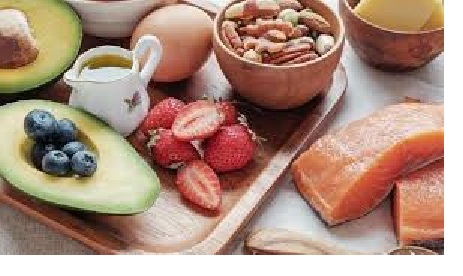Diet for acne

|
| Diet for acne |
We have all suffered from problems related to acne at different stages of
our lives, and the causes of acne can be the nature of oily skin, the
change of seasons, eating fatty foods and hormonal changes, but knowing
how to limit the growth of acne and the consequences that acne is a source
A big concern obviously, but there are simple dietary changes that can
help reduce acne.
The link between diet and acne
Your diet is one of the things that can affect your skin. Some foods raise blood sugar faster than others. When blood sugar rises rapidly, it causes the body to release a hormone
called insulin. Excess insulin in the blood can cause the sebaceous glands to produce
more oil, which increases the risk of acne.
With many different studies and studies that confirm that there is a link
between the food you eat every day and the appearance of acne on your
face:
There is a recent study that confirms that there is a direct link between
the presence of acne in adults and certain types of foods that help
stimulate fatty foods and sugars.
There are other types of scientific studies that deal with studies
conducted over a period of 10 years, where it was noted that eating
certain foods and continuing them on a daily basis and over the years
helped in the appearance of acne, such as foods high in the glycemic
index, but eating other foods can Protects against acne, such as fish,
vegetables and fruits.
Since there are foods that help stimulate inflammation in different parts
of the body, including inflammation that causes acne on the face, these
foods greatly affect the hormones that play a major role in stimulating
the appearance of oily skin.
But despite these studies, there is no scientific consensus confirming
that there is a close relationship between food and acne. It is possible
to eat this food and avoid acne.
Nutritional tips to prevent acne
Reduce your milk intake
Milk can cause acne. Cow's milk, for example, is full of sleep hormones, including IGF-1 and
beef. Hence, every time you absorb these hormones from milk, it will
negatively affect the health of your skin. The androgenic effect of whey from dairy products also negatively
affects hormones and leads to acne and facial hair.
Avoid foods with a high glycemic index
You should avoid corn syrup, sugar, white flour, refined grains,
sauces, ketchup, soft drinks, sports drinks, juices, and processed meats
that contain hidden sugars. These foods have a high glycemic index, which may lead to acne.
Get rid of acne with zinc
Studies show that zinc is more effective and better than topical
treatments such as clindamycin and erythromycin. Both topical and dietary zinc have natural anti-inflammatory properties
and inhibit acne-causing bacteria. Include zinc-rich foods in your diet such as beans, oysters, red meat,
and pumpkin seeds.
Limit iodine
Acne is closely linked to excess iodine. If you like Japanese food, avoid the seaweed or sushi
rolls. Sometimes we get too much iodine in our food because many ingredients
such as salt are iodized to avoid deficiencies. Please remember not to completely reduce your iodine intake, but to
reduce your salt intake, which will work wonders for your skin.
Omega 3 diet app
Flax seeds, chia seeds, and fish oil should be consumed regularly to
keep your skin healthy. These foods maintain healthy skin and are beneficial for our body in
many ways.
General tips for acne reduction and skin health
Wash your skin and face twice a day after sweating or exercising.
Wash your hair regularly, especially oily hair, with shampoo.
Use gentle skin care products and non-greasy cosmetics.
Avoid scratching, scratching, or touching the blisters.
Avoid exposure to the sun for long periods.
Avoid sweet chocolate that contains a lot of sugar.
Eat fish at least twice a week, as it is one of the foods that reduces
the appearance of acne.
Make sure to drink at least 8 glasses of water daily.
Eat vegetables regularly, especially those containing green leaves, and
stay away from starch.
Eat raw nuts a day, 4 Brazil nuts or 24 almonds.
Avoid eating sweets and chocolate and replace them with fresh
fruits.
The Mediterranean diet is a type of diet that helps you follow
nutritional rules, the most important of which is that it does not help in
treating acne, so you can experiment with foods.
Despite these many healthy nutritional tips to prevent acne, results are
not always guaranteed, as changes occur in about two months and results
begin to appear on the skin.


تعليقات: 0
إرسال تعليق